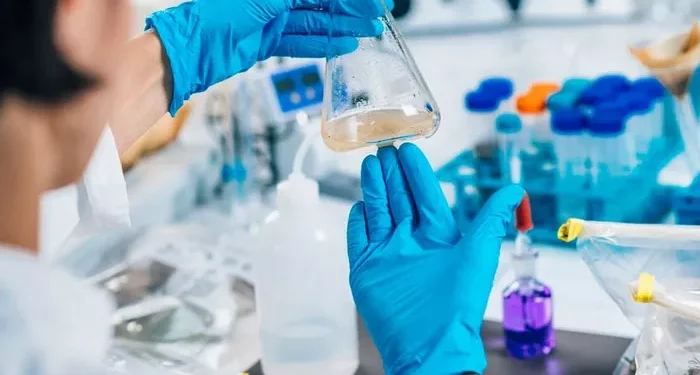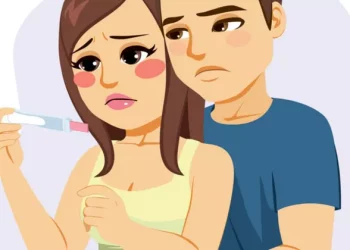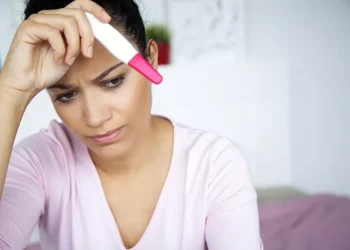Steroids are synthetic substances that mimic the effects of natural hormones produced in the body. They are commonly used for a variety of purposes, including medical treatments and performance enhancement. Medical steroids, like corticosteroids, are prescribed to reduce inflammation and treat conditions such as asthma and arthritis. On the other hand, anabolic steroids are often used by athletes and bodybuilders to enhance muscle mass and improve athletic performance.
The connection between a woman’s hormonal balance and fertility is intricate and vital. Hormones regulate the menstrual cycle, ovulation, and overall reproductive health. Any disruption in this delicate hormonal balance can lead to infertility, making it crucial to understand how external factors, like steroid use, might impact fertility. This article aims to explore how steroid use can negatively impact female fertility, the mechanisms involved, and the potential for recovery.
How Steroids Affect Fertility
Hormonal Imbalance
Anabolic steroids mimic testosterone, a male hormone, and their use can lead to significant hormonal imbalances in women. Normally, a woman’s body produces a small amount of testosterone, which is balanced by higher levels of female hormones such as estrogen and progesterone. An increase in testosterone levels due to anabolic steroid use disrupts this balance, leading to various reproductive issues.
The delicate balance of female hormones is essential for the regulation of the menstrual cycle and ovulation. Estrogen and progesterone work together to prepare the body for potential pregnancy each month. When testosterone levels rise, they can inhibit the production of these key hormones, leading to irregular or absent menstrual cycles. Without regular ovulation, the chances of conception significantly decrease.
Ovulation Disruption
Ovulation is a crucial step for conception as it involves the release of an egg from the ovaries. The hormonal imbalance caused by anabolic steroids can interfere with this process. Testosterone can disrupt the signaling mechanisms that trigger ovulation, leading to anovulation (absence of ovulation). Without ovulation, there is no egg available for fertilization, resulting in infertility.
In addition to ovulation disruption, the quality of the eggs may also be compromised. Hormonal imbalances can affect the environment in which eggs mature, potentially leading to poor egg quality. This can further reduce the likelihood of successful conception and increase the risk of miscarriage.
See also: Endometriosis and Infertility: How It Impacts Conception?
Menstrual Cycle Irregularities
The menstrual cycle is a reflection of a woman’s reproductive health. Steroid use can cause various menstrual irregularities, such as amenorrhea (absence of menstruation), oligomenorrhea (infrequent menstruation), and menorrhagia (heavy menstrual bleeding). These irregularities are often indicative of underlying hormonal disturbances that can impede fertility.
Amenorrhea, for instance, is a common consequence of anabolic steroid use. When the body is exposed to high levels of synthetic testosterone, it can suppress the natural production of estrogen and progesterone, leading to the cessation of menstrual periods. This condition not only indicates disrupted ovulation but also suggests a significant hormonal imbalance that can be challenging to reverse.
Impact on Egg Quality
Egg quality is a critical factor in female fertility. Healthy eggs are essential for successful fertilization and embryo development. Hormonal imbalances caused by steroid use can negatively impact egg quality, making it difficult for women to conceive.
Increased testosterone levels can alter the environment within the ovaries, affecting the maturation process of the eggs. Poor egg quality can result in unsuccessful fertilization, implantation failures, or early pregnancy loss. Women who use anabolic steroids may face a higher risk of these complications due to compromised egg quality.
Severity and Reversibility
Duration and Dosage
The severity of fertility issues related to steroid use is often linked to the duration and dosage of use. Long-term use of high doses of anabolic steroids can cause more significant and potentially irreversible damage to the reproductive system. The body’s hormonal balance can be profoundly affected by prolonged exposure to synthetic testosterone, making recovery more difficult.
Short-term use or lower doses of steroids may have less severe impacts on fertility. However, even short-term use can disrupt the menstrual cycle and ovulation, leading to temporary infertility. The extent of the impact varies from person to person, depending on individual health factors and the specific steroids used.
Possibility of Recovery
One of the critical concerns for women using steroids is whether fertility can be restored after discontinuation. The possibility of fertility recovery largely depends on the duration and extent of steroid use. For many women, ceasing steroid use can lead to the gradual restoration of hormonal balance and menstrual regularity. However, this recovery process can take time, and in some cases, medical intervention may be required to support hormonal rebalancing.
The body’s ability to recover also depends on overall health and the presence of any underlying reproductive issues. Women who stop using steroids and maintain a healthy lifestyle, including proper nutrition and regular medical check-ups, have a better chance of restoring their fertility. However, for those with prolonged or heavy steroid use, recovery might be more complex and require medical assistance.
Long-term Complications
While many effects of steroid use on fertility may be reversible, there are potential long-term complications to consider. Chronic use of anabolic steroids can lead to permanent damage to the ovaries and other reproductive organs. Conditions such as polycystic ovary syndrome (PCOS) can be exacerbated by steroid use, leading to prolonged infertility and other health issues.
Ovarian atrophy, a condition where the ovaries shrink and lose function, is another possible long-term complication. This condition can result from prolonged hormonal imbalance caused by steroid use and can lead to permanent infertility. Additionally, uterine health can be compromised, affecting the ability to maintain a pregnancy even if conception occurs.
Conclusion
Steroid use, particularly anabolic steroids, can significantly impact female fertility by disrupting the hormonal balance necessary for ovulation and menstrual regularity. Increased testosterone levels can inhibit the production of essential female hormones, leading to irregular cycles, anovulation, and compromised egg quality. The severity of these effects is influenced by the duration and dosage of steroid use.
Recovery of fertility after steroid use is possible, especially with short-term or lower doses, but it can take time and may require medical support. Long-term use of steroids poses a risk of permanent damage to the reproductive system, leading to chronic infertility issues.
Women considering steroid use should consult with a healthcare professional, particularly if they are planning to conceive in the future. Alternative solutions for achieving fitness goals without compromising fertility should be explored to maintain overall reproductive health. Understanding the risks associated with steroid use can help women make informed decisions and protect their fertility.
Related Topics:
The Causes, Symptoms & Treatment of Anovulation: A Full Guide
Does Lack of Periods Mean Infertility: A Complete Overview
Uterine Polyps and Miscarriage Risk: What is the Connection?



























